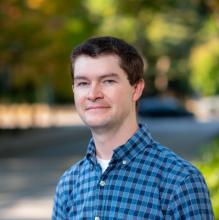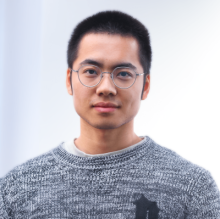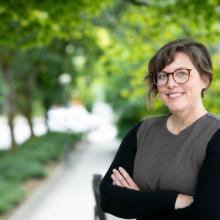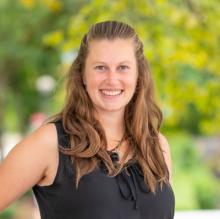Claire's research examines, for the first time, the artistic significance of the double lineage of Decroux and Grotowski for Canadian performance, and will bring together previously undocumented innovations by Canadian researchers and artists in order to fill a profound gap in our current understanding of Canadian theatre history/practice.
Research Description
Western Canadian theatre artists have made unique and valuable contributions to the creative lineages of world renowned European masters Etienne Decroux and Jerzy Grotowski, and yet this work remains almost entirely undocumented. My research places special emphasis on our senior artists, in an effort to record and analyse the key innovations we've made to physical theatre forms that require years of practice to master. Canadian work integrates a deep respect for the place, the individual and the group; building upon my mentor Dr. Virginie Magnat's approach, my research also aims to investigate and articulate the Indigenous epistemologies at play within Canadian evolutions. With the roots of this work in Europe, and key practitioners in America, my study of our local contributions fits within a global network of scholarship and evolving artistic practice.
What does being a Public Scholar mean to you?
Less jargon; more dialogue! Much work remains to be done to overcome the perceived divisions between professional theatre practice, the art of teaching, and scholarly illumination. For me, being a public scholar means working to bridge these gaps and prove what rich and generative discussions can follow from the intersection of disciplined embodied practice and rigourous scholarly inquiry.
In what ways do you think the PhD experience can be re-imagined with the Public Scholars Initiative?
I think the Public Scholars Initiative is essential; PhD's need to be tailor made, individual projects that speak to our world in unique and diverse ways.
How do you envision connecting your PhD work with broader career possibilities?
My PhD work is allowing me to dig down to the roots of my profession and understand the wider historical and political contexts from which the work has grown. It will make me a more informed teacher, a writer worth publishing, and a theatre practitioner better equipped to work within a global context.
How does your research engage with the larger community and social partners?
I'm working to document and celebrate the cultural contributions made over many decades by dedicated artists. My research wouldn't have been possible without the legacy of Tooba Physical Theatre Centre and the Corporeal Mime Society. Blue Egg studios will work with me to produce a workshop series that makes this training available to a wider public.
Why did you decide to pursue a graduate degree?
After 26 years training, teaching, performing and directing in physical theatre, I wanted to widen my knowledge of theatre through history and understand the roots of the forms I practice. And I wanted a structure that would challenge me to write about/document the innovations of Western Canadian artists (such as my father Dean Fogal) with a level of intellectual rigour to match the high artistic quality of the work I celebrate.
Why did you choose to come to British Columbia and study at UBC?
I did my BA in Theatre at UBC years ago, and knew that the fabulous faculty in the Dept of Theatre and Film would both challenge and generously support me to pursue my research.
My PhD work is allowing me to dig down to the roots of my profession and understand the wider historical and political contexts from which the work has grown".




